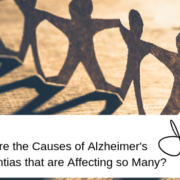Doctor’s Warning Against Food Additives

The American Academy of Pediatrics (AAP) is cautioning parents and pediatricians to avoid exposing children to eight chemicals found in food and in plastic packaging. But it’s not a warning that should be advised just for kids because of their small size, it should be advised for everyone! Everyone has a developing and maturing brain.
In the electronic magazine On The Brain, my article titled We’re Dying Our Brains tells about color in foods damaging our brains, young and old alike. This recent study from AAP shows us the damage plastics, found inside foods (yes, inside) and in housing foods, do not only to our brains but to our overall health.
8 Major FOOD Chemicals to Avoid
The eight chemicals they studied are:
-Nitrates (preservative in meats)
-Nitrites (preservative in meats)
-Bisphenol A or BPA (lining inside metal cans)
-Phthalates (inserted to make plastics stronger and more flexible)
-Perfluoroalkyl (PFAS) (used to keep food from sticking)
– Perchlorate (controls static electricity in food packaging)
-Polybrominated diphenyl (PBDEs) (flame retardant put in plastic packaging)
– Artificial food colorings (This study did not specifically cover individual coloring agents. See my article We’re Dying Our Brains for coloring damage details.
The damage to the brain and the body…
The chemicals nitrates and nitrites, as well as bisphenol A, or BPA, have been linked to cancer, obesity and cardiovascular disease (SN: 10/3/15, p. 12). Phthalates and perfluoroalkyl have been associated with endocrine disruption, obesity and insulin resistance, which is when cells don’t respond properly to insulin (SN Online: 2/9/12) leading to starvation of brain cells. Percholorate is known to disrupt the thyroid hormone function and polybrominated diphenyl ethers are found to be association with hypothyroidism in toddlers. Some of these chemicals may also have neurocognitive (head brain) effects, such as increased hyperactivity in children, says study coauthor Sheela Sathyanarayana, a physician and epidemiologist at the University of Washington in Seattle.
Because scientists are unable to test the effects of these chemicals directly in humans, evidence shows only that there is correlation, not causation, between exposure and disease.
To avoid these chemicals, the report suggests that parents, but I say all who buy, should buy fresh or frozen produce and skip processed meats packaged in plastic or food in metal cans, which can be lined with BPA. (Plastic is a major head brain disruptor, read more about it in my free booklet 9 Signs You’re Experiencing Brain Drain and How to Keep Your Brain Fully Charged.) Certainly, everyone should avoid storing foods in plastic, not allowing cooked foods to touch plastic. Also never put plastic containers in the dishwasher or microwave, as the report states heat can draw these chemicals out of plastic.
The researchers say that they hope the report prompts more strict regulation of these additives.
Bottom line, all of us who buy and cook foods for ourselves as well as for our children should know to stay away from heavily packaged and processed foods and eat as all natural as possible. (How to get started doing that? check out my 5 Secrets to Getting Your Gut in Gear found here.)
Wishing you and all, the very best in good brain health,

The purpose of this information is to convey knowledge. It is not intended to diagnose, treat or cure your condition or to be a substitute for advice from your main healthcare professional. Sincerely, I wish you and yours the very best in brain health.
www.JanetRichPittman.com

AAP study:
http://pediatrics.aappublications.org/content/early/2018/07/19/peds.2018-1408
Science News










